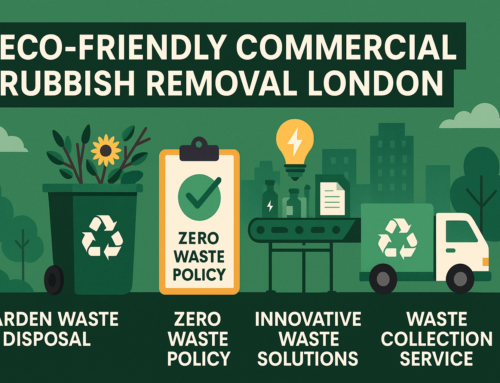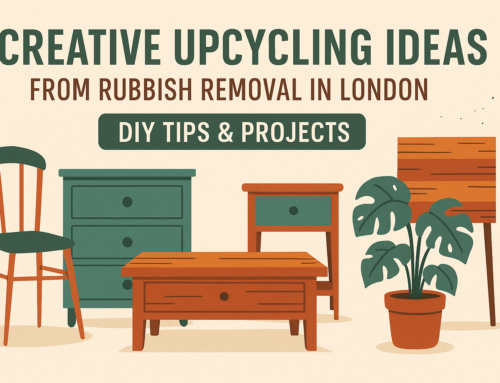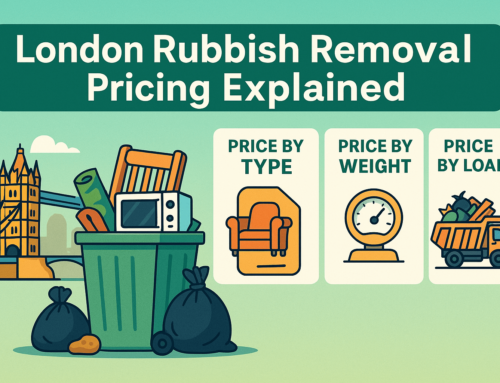As London pushes for a greener future, major changes are coming to how the capital manages its waste. Beginning in 2025, the London waste regulations 2025 will reshape household and commercial rubbish collection. These updates aim to reduce landfill use, increase recycling rates, and support circular economy goals.
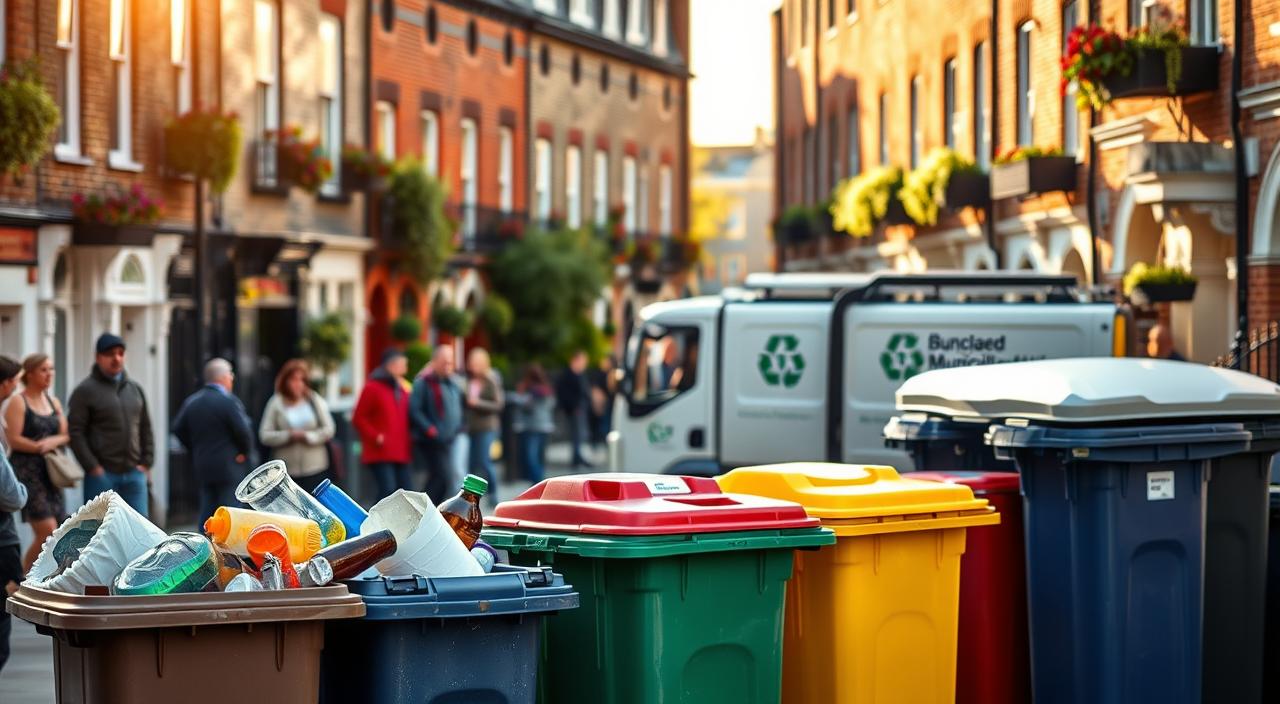
Whether you’re a homeowner or business operator, understanding these new requirements will help you avoid penalties—and make smarter environmental choices.
Key Takeaways
- New rules will change how all Londoners manage waste and recycling.
- Households must follow a new four-bin system for waste separation.
- Businesses face compliance deadlines starting March 2025.
- Non-compliance may lead to fines from the Environment Agency.
- Licensed waste collectors will be key to navigating changes smoothly.
Why Are the New Waste Rules Being Introduced?
The UK government and local authorities are aligning waste policies to meet environmental goals. The London waste regulations 2025 are designed to cut greenhouse gas emissions and help the city hit national recycling targets.
Key Goals and Benefits
| Objective | Action | Impact |
|---|---|---|
| Better Waste Sorting | Require separate bins for key materials | Higher recycling rates |
| Landfill Reduction | Limit what can go in general waste | Fewer emissions |
| Cleaner Recycling Streams | Prevent contamination at the source | Improved recyclability |
Over the years, initiatives like the Plastic-Free London campaign and landfill taxes laid the groundwork for these changes.
Important Deadlines to Know
Staying on top of deadlines will help you stay compliant. The new regulations are being rolled out in phases to give both households and businesses time to adjust.
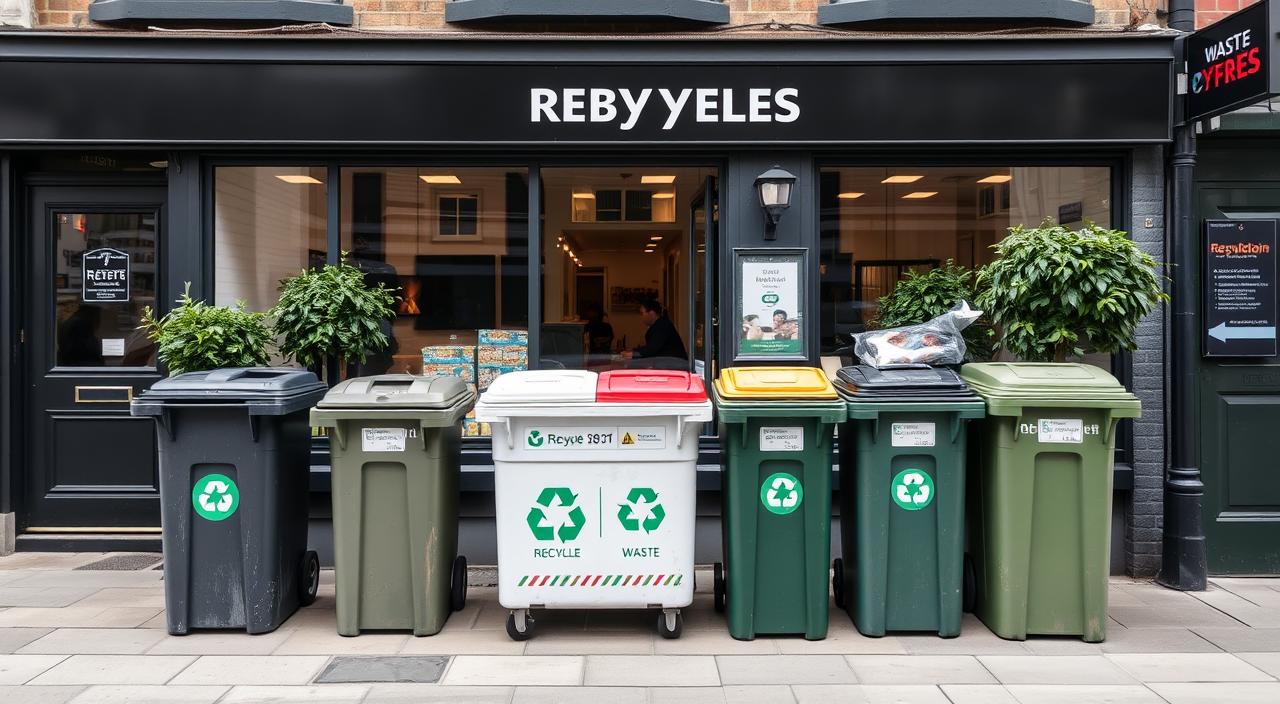
For Businesses
From 31 March 2025, all commercial premises must separate:
- Glass
- Plastic containers
- Paper and cardboard
- Metal cans
- Food waste
This rule applies to businesses with 10 or more full-time equivalent (FTE) staff.
For Micro-Businesses
Those with fewer than 10 FTE employees are temporarily exempt until 31 March 2027. However, it’s wise to prepare early.
For Households
Although no final date has been announced, councils are expected to begin phased enforcement later in 2025. Keep an eye on your local authority’s website.
What Households Need to Do
From food scraps to packaging, residents will need to adopt a new waste sorting system. Not only does this help the environment, but it also ensures you won’t face penalties.
The Four-Bin System
You will likely be issued four separate containers:
- Dry Recyclables – cleaned glass, metal, plastic, paper/card
- Food Waste – collected weekly in sealed caddies
- Garden Waste – where available, collected separately
- Residual Waste – everything that can’t be recycled
Waste Separation Examples
| Category | Items |
|---|---|
| Glass | Jars, wine bottles (rinsed) |
| Plastic | Clean tubs, bottles, trays |
| Metal | Cans, tins, aerosols |
| Paper & Card | Envelopes, boxes, flyers |
To avoid contamination, rinse all food containers and remove lids or labels when possible.
What Businesses Must Prepare For
Businesses must comply with stricter waste collection rules based on their size.
- By 31 March 2025, large businesses need to arrange separate collections for key recyclable materials.
- Micro-firms with fewer than 10 staff have until 2027 to comply, though early action is encouraged.
How to Calculate FTE
Part-time workers count as a portion of one FTE. Add up total working hours and divide by a full-time schedule to find your equivalent employee number.
Avoiding Penalties and Fines
The Environment Agency will monitor compliance using:
- Routine inspections
- Public reports
- Spot fines and enforcement notices
To avoid trouble, stay updated with your council and double-check that your waste collector meets legal standards.
Adjusting to New Collection Schedules
To make room for the new recycling streams, many boroughs will revise collection days and frequency.
For example:
- Food waste will likely be picked up weekly.
- Residual waste pickups may happen less often.
- Garden waste will remain seasonal in most areas.
Always check with your local council for any changes.
How to Choose a Waste Collector
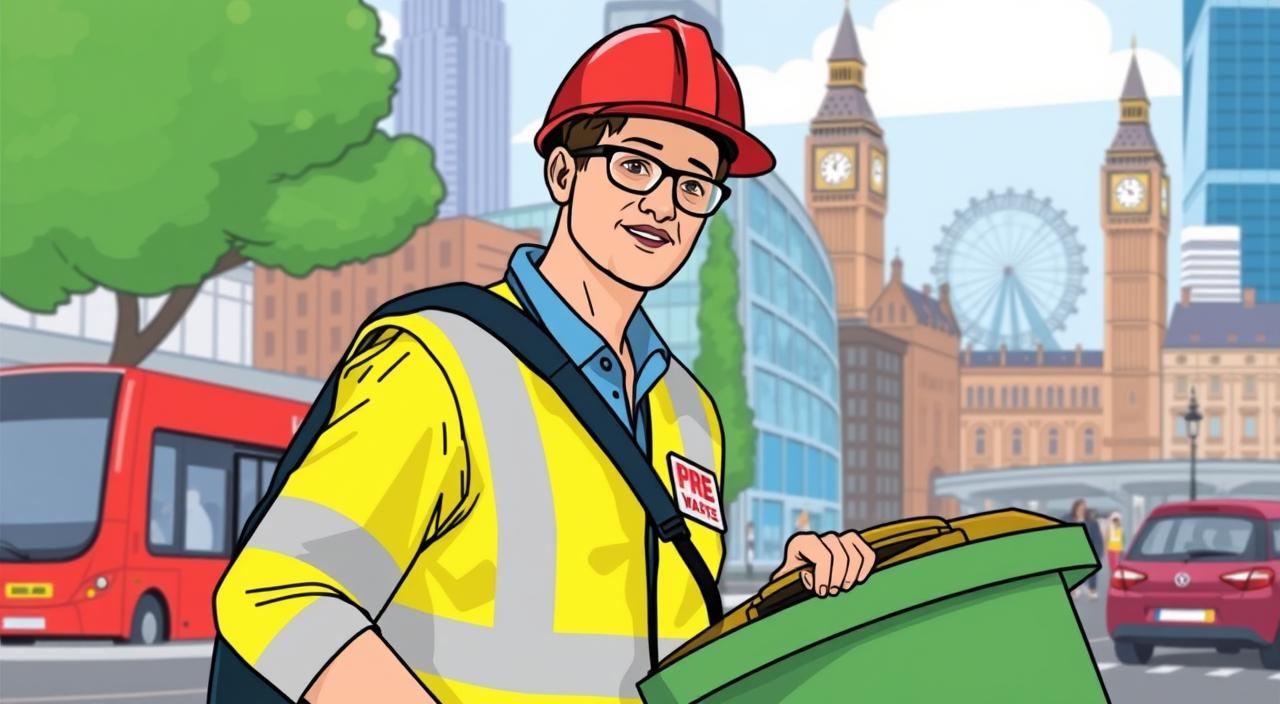
If you’re a business or property manager, partnering with a licensed waste provider is essential.
Questions to Ask:
- Are you listed on the Public Register of Waste Carriers?
- How do you handle each waste stream?
- Do you provide separate bins for recyclables and food waste?
- What are your contamination policies?
- Can you offer reports on recycling rates?
Embracing Smart Waste Technologies
Technology is making it easier than ever to stay compliant and reduce contamination.
Popular Innovations
- RFID Bins – Track bin usage and allow pay-as-you-throw models.
- QR Codes – Offer sorting instructions when scanned.
- Waste Management Apps – Monitor collections and send alerts.
These tools make waste tracking more transparent, helping both households and businesses avoid costly mistakes.
Supporting Circular Economy Growth
The London waste regulations 2025 are a critical step in building a circular economy. Rather than dumping waste, the goal is to reuse, repair, or recycle materials wherever possible.
Examples of Growth Areas
| Sector | Opportunities | Outlook |
|---|---|---|
| Recycling Tech | Robotics, AI sorting | Rapid Growth |
| Green Manufacturing | Using recycled materials | High Demand |
| Consultancy Services | Advising on compliance | Moderate Growth |
These changes also support the UK’s £10 billion investment in domestic recycling infrastructure.
What Not to Recycle
Even with better systems, contamination remains a problem. Make sure you avoid putting the following into recycling bins:
- Greasy pizza boxes or soiled paper
- Plastic toys or garden furniture
- Biodegradable coffee pods
- Polystyrene and cling film
- Hygiene products and tissues
If you’re unsure about an item, check your council’s recycling guide before throwing it away.
Preventing Contamination: Top Tips
- Rinse food packaging before tossing it in the bin.
- Avoid “wish-cycling”—don’t recycle something just because it “might” be recyclable.
- Use clear signage on bins if you manage a shared waste area.
- Flatten cardboard boxes to save space and reduce pickup issues.
Conclusion: Ready for the Future?
The London waste regulations 2025 represent more than just policy changes—they reflect a shift in how we value and manage resources. With proper preparation, households and businesses can adapt smoothly.
The earlier you start adjusting your habits, the easier compliance will be. Whether it’s separating your food waste or finding a reliable waste partner, every step you take helps build a cleaner, more sustainable London.
